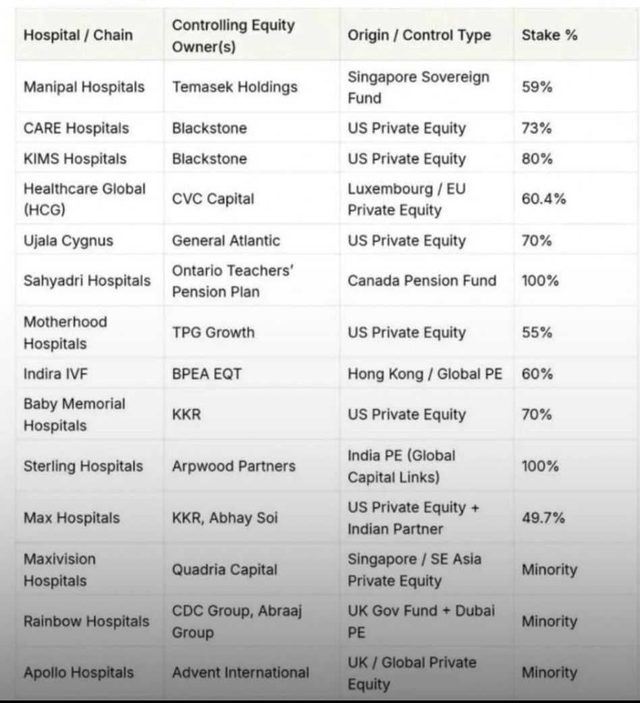KKR-owned multi-speciality healthcare chain Baby Memorial Hospital (BMH) has acquired a significant majority stake in Meitra Hospital, both based in Kozhikode, a city in the southern Indian state of Kerala, The Economic Times reported on Monday.
The deal, KKR’s third in the state, values Meitra Hospital at around Rs 1,000-1,200 crore ($113-136 million), the report said, citing people familiar with the development.
BMH, in which KKR acquired a controlling stake in 2024, is also in early discussions to buy Star Care Hospital, another Kozhikode-based chain.
Last year, KKR also bought the 350-bed Chazhikattu Multi Speciality Hospital in Thodupuzha, a town in central Kerala.
The expansion underscores KKR’s strategy of doubling down on the region, buoyed by the fivefold return scored during its exit from Max Healthcare in 2022.
The Indian healthcare market has grown at a scorching pace in the past few years and is projected to touch $638 billion by FY2025, per industry estimates—making it one of the largest sectors in the country in terms of revenue and employment, and an attractive bet for PE firms.
PE firms also hold sizeable shares in India’s leading chains like Apollo Hospitals and Max Hospitals.
Sahyadri Hospitals, a large chain of hospitals in western India, is 100% owned by Ontario Teachers’ Pension Plan (OTPP). Sterling Hospitals, a multi-speciality chain in Gujarat, is also fully owned by Arpwood Partners, a buyout-focused PE firm.
Singapore’s sovereign fund Temasek Holdings owns 59% in Manipal Hospitals, a leading chain headquartered in Bengaluru. US-based PE firm Blackstone has majority stakes in CARE Hospitals; and KIMS Health Management, a leading chain in the southern state of Kerala.
US-based PE giant TPG Growth owns a majority stake in Motherhood Hospitals, a chain of super-speciality hospitals focused on women’s and children’s health.
Private equity stakes in India’s leading hospitals

The entry of PE players into the sector has also sparked concerns that the drive for profits, which PE firms are known for, could price out nearly a third of India’s burgeoning middle class from accessing quality healthcare, a point DealStreetAsia explored recently.
India’s medical inflation rate was 14% as of September last year, the highest among Asian countries, including China, according to data from healthtech company Onsurity.
However, in a recent interview with DealStreetAsia, Somerset Indus Capital Partners partner Ramesh Kannan said that because of the government’s involvement in Indian healthcare, especially outside metros, costs will remain controlled. “Many people base their views on experiences in the US and Europe. But India is different… Here, the government is a major payer, especially outside metros, through insurance for less privileged groups. Generics are also coming into play, which keeps costs lower. So, the risks are less here,” said Kannan.

